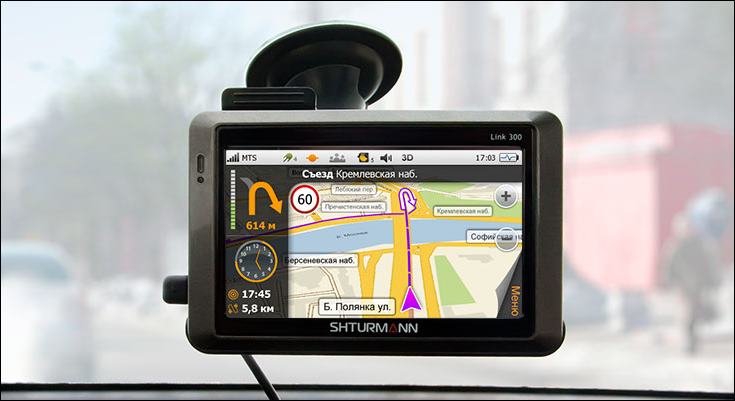There is a very simple reason you may want to know the difference between a GPS tracking device and GPS navigation:
There is a monthly service fee for GPS tracking devices and just a one-time purchase cost for GPS navigation.
If you are managing a fleet of commercial vehicles, we can give a long list of reasons that you will want the latest in GPS tracking technologies. If you are keeping tabs on a very young or very mature driver, you may want GPS tracking, too. But many drivers only need GPS navigation for their own cars.
What is GPS Tracking?
GPS tracking tells you where your vehicle is, and where it has been when you aren’t driving it. It can be configured to give you a tremendous amount of additional information about how your vehicle is being driven, whether everything is working mechanically or whether you need to schedule repairs (there are systems that can even schedule the repairs for you), and whether your vehicle has been in a crash.
Let’s start with the very basics of GPS tracking: GPS tracking can reveal the location of your vehicle to within 3 meters—that’s about 10 feet—updating its location once a second. There are units that can give you 5 to 10 Hz updates, updates 5 to 10 times a second.
GPS tracking can record a map of where your vehicle has been on any given trip. It can be set with geofences that automatically notify you when your driver has traveled out of bounds, and it can be wired into your car’s computer to notify you when the driver hits the brakes, takes a wide curve, accelerates in a rough way, or is idling the car. It can also notify when your vehicle has been speeding.
Commercial GPS telematics systems can be set to keep up with tire pressure, fuel efficiency, engine performance, and transmission issues. Your dispatch office will know about repair and driver education issues in real-time.
And if you are using GPS tracking of your personal car to monitor a young driver, the system can be set up to push notifications to your smartphone.
What is GPS Navigation?
People under the age of 40 may not remember it, but there was a time when the way to chart your route from your home to a location with which you were not familiar was with a fold-up paper map. The ability to read a paper map (and fold it back up in a way that made it fit in your glove compartment) was an essential driving skill.
Then GPS navigation came along. Enter a destination into the GPS navigation unit on your dashboard, and a roadmap to your destination appears. Speech synthesizers read precise instructions on where to change lanes, where to enter and exit highways, and where to stop because you have reached your destination. Miss a turn? No problem. The unit simply recalculates your route and continues giving you directions.
GPS navigation doesn’t require a SIM card or an Internet connection. The navigation unit in your car uses signals from satellites the US Space Force maintains in geostationary orbits thousands of miles overhead.
And GPS navigation won’t tattle on you. It’s intended for the use of the driver in whose vehicle it was installed. It doesn’t report your position to anyone other than you.
Important Differences Between GPS Tracking and GPS Navigation
GPS Technologies can get you set up with exactly the GPS tracking or GPS navigation devices and subscriptions you need. But if you are managing any number of commercial vehicles, from one to one thousand, we know you will benefit from GPS tracking.
The added information from telematic tracking from GPS Technologies can make a substantial difference to your company’s bottom line. Here are the kinds of operating improvements a typical commercial customer of GPS Technologies experiences just six months after adopting comprehensive GPS tracking from GPS Technologies:
- Economical driving hours increased by 14%
- Fuel economy from reduced idling and better compliance with speed limits increased by 18%
- Operator hours (measured as windshield time) down by 25% due to better communication between dispatch, customers, and drivers
- Engine idling was reduced by 70%. And very significantly
- Harsh braking incidents, all of them reported dispatching, down by 81%
Modern GPS tracking from GPS Technologies informs fleet administrators when routine maintenance is due and when preventive maintenance needs to be scheduled. GPS tracking gives fleet managers the data they need to coach their drivers for better performance and to reward drivers for exceptional professionalism on the road.
GPS navigation, of course, is a single sunk cost. GPS tracking technologies cost a lot more upfront and incur monthly administrative fees. But most customers of GPS Technologies find their systems pay for themselves well before the end of the first year. And the ability to prevent even one injury accident or one major capital asset from “falling off the radar” circumvents losses that could tremendously exceed the cost of the system.
Just about any vendor can sell you an onboard navigation unit if your vehicle didn’t come with one from the factory. GPS Technologies experts, however, can install and configure the systems you need for truly useful tracking and integrate them into your company’s other management systems.
At GPS Technologies, we are here to help you find the GPS tracking solution that best meets your needs. Contact us online or call us for a free quote at (847) 382-5107 8 am-5 pm, Mon-Fri CST.
This post was last modified on January 16, 2022 7:56 PM

